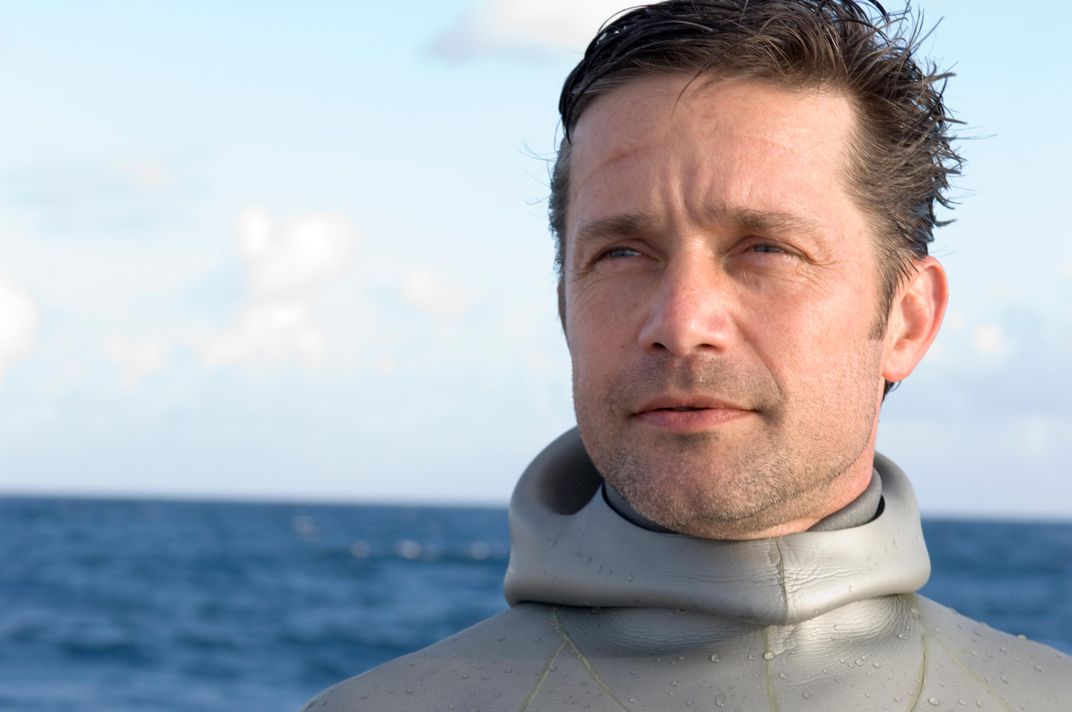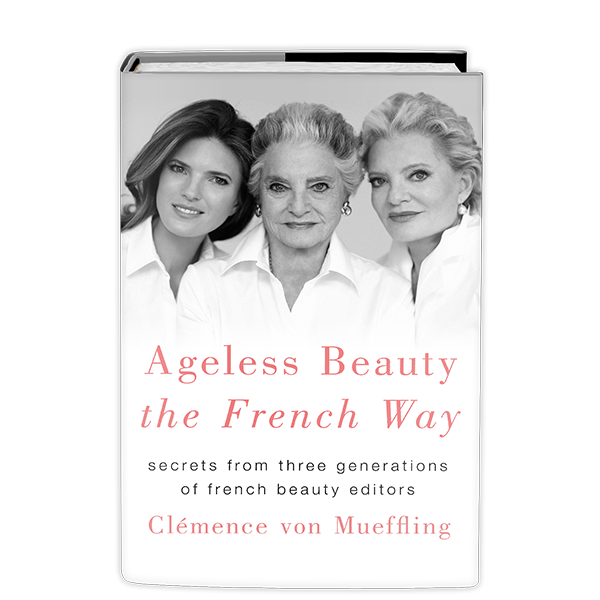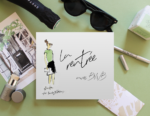Deep Sea Rendez-Vous with Fabien Cousteau
An exclusive interview with Fabien Cousteau – a hero for the very oceans he grew up in with grandfather & iconic naval explorer, Jacques Cousteau.
Fabien Cousteau’s relationship with the ocean is a lifelong legacy of romance that begins with his grandfather, Jacques Cousteau. As a French naval officer and pioneer of ocean conservation, Jacques sought to educate and inspire younger generations to preserve the magical wonders under the sea. Now, Fabien dedicates his life and career to the same goal — encouraging others to protect a vast underwater ecosystem that has already changed drastically since he was a young boy.
Growing up on his grandfather’s ships and learning to scuba dive at age four, Fabien has made the ocean his second home. In fact, the ocean really was his home — for about 31 days! During a historic scientific expedition on the underwater marine laboratory, Aquarius, Fabien and his crew of aquanauts went on a death-defying dive below the blue veneer. In fact, Fabien broke his own grandfather’s record by one day in the process. With every film, project and expedition, Fabien continues to develop the love for ocean life embedded in his DNA. Read below to join Fabien on an expedition with BWB to learn more about ocean conservation, life on an underwater laboratory and more.

What is your first memory of exploring the deep blue waters with your grandfather, Jacques Cousteau?
I have a lot of good memories with my grandfather, Jacques Cousteau. Many of my earliest memories include sitting by the pool and listening to him speak about the ocean. But, one of the more vivid memories I have as an eight year old was on Calyspo. Ultimately, my grandfather was juggling a ship, 25 crew members and his family. Luckily, my grandmother was there as well. Together, they shepherded a lot of experiences for me on Calypso and at home. Some of my favorite experiences were at their home because we had fewer distractions. We could celebrate holidays as a family without the distraction of interviews and meetings.
I remember less about the stories, but more about the romance and the passion.
I’ll give one example from the 1970s. I’ve moved 32 times in my life. When my family was living in LA at the time, my grandparents came to visit. My grandfather sat down at the pool and told me about his early explorations. He mused about the romantic beauty and fragility of the ocean, as well as all the discoveries still left out there. I remember less about the stories, but more about the romance and the passion. In these moments, he was truly my grandfather — not just the famous Jacques Cousteau. This is why I fell in love with the ocean. It’s why I am so ever-curious about what is beneath that blue veneer. Because of him, I understood the importance of the human-ocean connection. It’s our life support system. It’s our sense of well-being. It represents everything that we love and should protect in life.
Having been on so many underwater adventures & expeditions, do you have a favorite?
I’m not so sure about favorite, but certainly one of the most challenging expeditions was during the shark documentary. I wanted to confront the general public about the misunderstanding of sharks and why they are important. Sharks are the caretakers or garbage cleaners of the ocean, regardless of how we may feel about them. For decades, the press consistently sensationalized and fixated on the idea that sharks were man-eaters trying to kill us.
I’m all for science fiction. Jaws was a big movie when I was growing up! Even as a young child, I noticed sharks were portrayed in these films differently from what I had seen and heard from family. This notion stuck around in my mind for decades, so I reignited my childhood fantasy of a shark-shaped submarine. But, I took it one step further: the submarine also moved and acted like a shark. It took us over three years to complete the expeditions and construct the submarine. Four and a half months of that time were spent on-site diving with white sharks almost every day. While difficult, this was one of my favorite adventures in terms of the behind-the-scenes expeditions and scientific research. Ultimately, we reached audiences who may have never sought out the documentary through prime time television on CBS. In that sense, the project served its purpose.

Photo Credit: Christopher Marks
Is there a difference between French and American attitudes toward the ocean and ocean conservation?
Consciousness about the ocean has a lot to do with upbringing, education and exposure to science. The two countries differ a lot when it comes to how people learn at home and at school. As a result, I would say there are definitely fundamental differences and sensibilities about valuing the ocean. I can’t say that one is better than the other. In some ways, I’ve been pleasantly surprised with actionable movements toward change. In other ways, I have also been disappointed to observe a lack of consciousness or action. For example, blue fin tuna fishing is a perfect testament to this lack of consciousness. With modern day satellite imagery and technology, we have virtually wiped out the population to a mere 2 percent. Consequently, these tuna fish have no chance of reproducing.
We must be able to live with the planet and not on it.
If we want to give back to future generations what we have taken for granted, we have to understand the planet as a natural resource bank account. In other words, we need to start investing in depleted capital and live off the interest instead. There are plenty of individuals from both countries who are conscious of these things and trying to do better. But, we need to do much better as a global society. All countries need to communicate the importance of this life support system and protect this web of life. We must be able to live with the planet and not on it.
What is your wellness routine?
This is a great question because we don’t often speak about the difficult living conditions for aquanauts. We try our best as storytellers to portray underwater labs as homes and efficient workspaces. In reality, an underwater lab like Aquarius houses up to six people in 47 square meters. In comparison, this is about the size of a school bus or a small studio apartment. You’re doing everything in this space, from working and eating to showering and sleeping.
There is certainly a physical aspect to the experience because you’re burning more calories than you would on land. Your body is working hard to stay warm in a cold, humid environment. The air is also three times denser than the air on land, so you have to adjust to the syrupy feeling. It takes 18 hours of decompression obligations to return to the surface! This makes the journey comparable to traveling to the moon. Your ears also have to adjust to the pressure difference, and your sense of taste will become dull.

Photo Credit: Stephen Price
The excess nitrogen can also make your thinking a bit fuzzy, so decision-making becomes crucial. Emotionally, you’re in a very small space with six people – you have to be ready for it. Your surroundings are very sparse and utilitarian, so you need to be psychologically prepared to withstand this environment. You need to prepare for psychological challenges, as well as physiological and emotional rigors.
I highly recommend being in shape! You have to train like astronauts do, which involves some military style training. For example, you must be able to tread water for 20-30 minutes and swim the full length of an Olympic-sized pool, one breath and unassisted. You must also be able to do a full dive without a mask. All of these physical preparations simulate emergency situations on Proteus. As a result, it is important to be capable and calm to face these challenges.
If you could give one piece of advice to our readers on how to be better protectors of the ocean, what would it be?
It is not seafood; it is sea life!
It’s important to understand that we as individual decision makers are instrumental in part of the problems. But, we — as leaders of our homes, communities or businesses — are also paramount in creating solutions. The first step is to increase consciousness of decisions with serious consequences, such as single-use plastic consumption. We need to change our language and the way we think about things. It is not seafood; it is sea life! We don’t give the animals and plants that we depend on a value. Instead, we need to keep track of our decisions and keep ourselves accountable with resources like seafood watch guides. Download an app like Seafood Watch, which can advise you at the supermarket or the restaurant to avoid endangered animals. The goal as consumers is to guide businesses to make better choices and respond to changes in demand.
There are lots of small decisions we can make every day that will help in little ways. Take public transportation, use more efficient or electric cars, or turn off your electricity. If everyone took these actions, we could reduce our carbon footprint by a third if not a half as a global population.
Where can our followers find you, follow you or support any upcoming Cousteau projects?
Look at our website! You can also reach out to me on Instagram, LinkedIn, Facebook, or Twitter. Or even the old fashioned way: give us a call!
Feature Image Credit: Carrie Vonderhaar
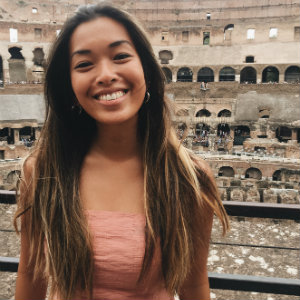
Originally from Los Angeles, Alicia lived in Shanghai for 11 years before moving back to the states to attend the University of Miami, where she graduated with a bachelor’s degree in public relations and minors in art and philosophy. Currently residing in New York City, Alicia applies her knowledge of strategic communication and design in her career. She enjoys painting, rugby, exploring, and more often than not, you’ll find her petting someone’s dog.
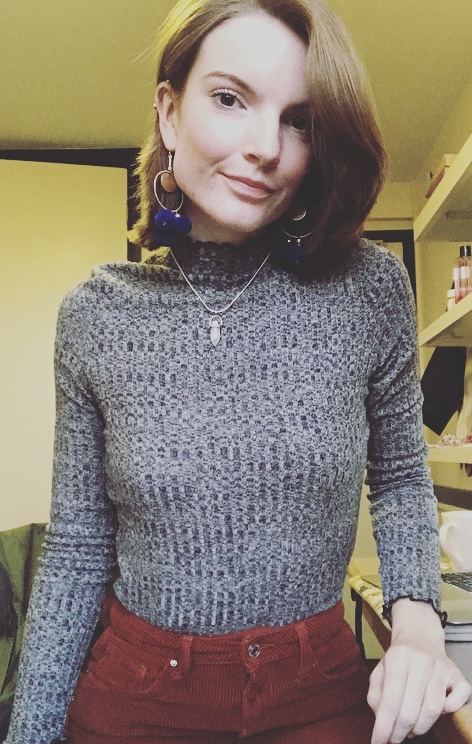
Teresa Deely is a graduate from Columbia University with majors in English and Creative Writing. She is a freelance writer and marketing assistant working for clients in the wellness, jewelry, creative, and sports industries. She believes that one’s skin is yet another canvas and vehicle for art, and has loved styling her hair and applying makeup from a young age. Spending much of her time in educating youth and leading enrichment programs for children, she is highly motivated in discovering new ways to care for herself and sharing them with others.


